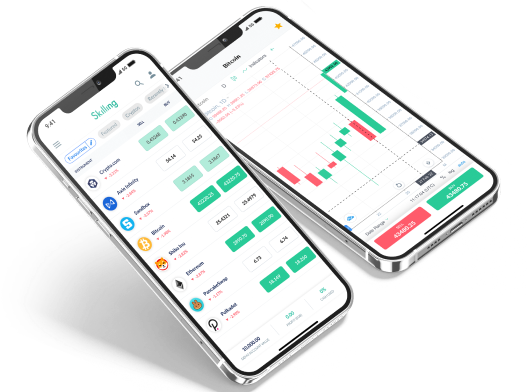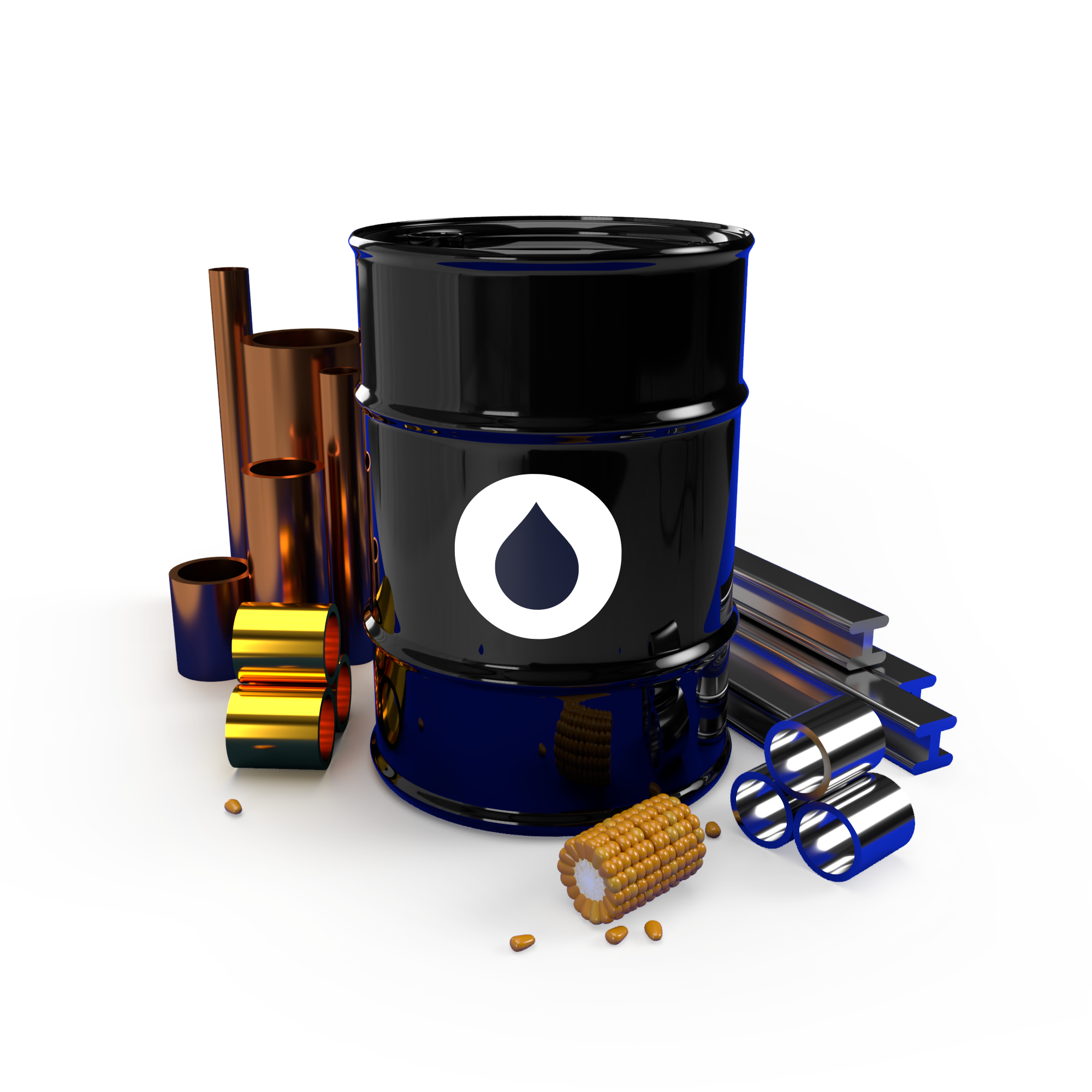Gold has been captivating humanity for millennia, with its shine and scarcity making it one of the most pursued resources in human history. Yet, it's not just its intrinsic value that draws people to the golden metal; it's the allure of its price movements and gold's status as a safe-haven asset during economic turmoil. Now, these market dynamics are shifting, with gold trading patterns evolving every day, and individuals no longer needing to physically buy and sell gold.
Before you learn how to trade gold online, let’s look at why gold is a desirable commodity and asset for both traders and investors.
Reasons why people are interested in trading gold
Understanding the reasons behind the enduring interest in gold is crucial for any prospective trader. Gold transcends national currencies, and its price trends often provide valuable insights into market sentiment and economic health.
- Historical context : Historically, gold has been used as a stable store of value, and this perception endures. It has been a currency, a standard, and a hedge against inflation and currency depreciation.
- Economic instability : In turbulent times, such as during recessions or geopolitical uncertainty, gold often maintains or increases its value. Traders flock to gold, leading to significant market activity.
- Industrial uses : While the majority of gold is not consumed in the industrial sector, a proportion is used in electronics, dentistry, and aerospace. This translates to additional price drivers beyond merely speculative trading.
Experience Skilling's award-winning platform
Try out any of Skilling’s trading platforms on the device of your choice across web, android or iOS.

How to trade gold
1. Choosing your market
Before starting, decide whether the futures market, funds, or spot and options markets align with your goals and risk tolerance. Each market has its nuances and attract different types of traders.
- Spot market : The spot market refers to the current gold price. Because commodities trade on the underlying futures exchange, the spot gold price is derived from the closest front month contract. This allows traders to trade gold without taking physical delivery.
- Futures market : Futures provide a standardised contract to buy or sell commodities or financial instruments at a specified price on a predetermined date in the future. For investors or jewellers who want to take physical delivery, they could purchase the contract and hold it until expiry. For traders who plan on holding gold for a prolonged period, a futures contract allows them to do so, without paying interest for holding positions overnight (since this is included in the futures price). As the contract gets closer to expiry, the trader would have the option of rolling over the position to the next month contract
- ETF market : Exchange-traded funds (ETFs) are marketable securities that track an index, a commodity, bonds or a basket of assets like an index fund, and they trade like a common stock on a stock exchange. If the price of gold increases, the ETF will rise simultaneously. If prices decrease, the ETF will fall.
- CFDs : Contracts for Difference (CFDs) are derivative instruments that allow traders to speculate on the movements in underlying financial assets like gold prices, without owning the assets themselves.
2. Trading online with XAU/USD CFD
With Skilling, a 2023 global award winning CFD broker, you can trade gold (XAU/USD) in the form of CFDs with very low spreads. Simply open a live trading account or open a demo account to familiarise yourself with trading and test out different strategies.
The XAU/USD pair allows you to trade the spot price of one troy ounce of gold, denominated in US dollars. Here are some tips for navigating this market:
- Keep an eye on the central bank : Central banks frequently affect gold prices with their purchasing activities. A central bank buying more gold may signal economic trouble.
- Analyse political situations : Since gold is tied to economic stability, keep an eye on political events that could disrupt markets or currencies.
- Track previous highs and lows : Use technical analysis to determine potential trends. Previous high and low targeting can provide reliable signals if timed correctly.
3. The role of timing
Like any market, timing is critical in gold trading. The New York trading session has traditionally been the most liquid for gold trading, often experiencing peak market volatility.
- Try using indicators : Employ forex indicators such as the symmetrical triangle pattern, which predicts breakouts and could aid in decision-making.
- Understand demand : Keep abreast of shifts in gold demand for commercial and industrial uses. Increasing demand often results in price increases.
4. Managing risk and reward
The keys to effective trading are managing risk and maintaining realistic expectations regarding rewards. Implement stop-loss orders to limit potential losses, and always aim for a manageable risk-to-reward ratio.
- Implement a proper risk management strategy : Determine the maximum percentage of your trading capital you're willing to risk on a trade and adjust position sizes accordingly.
- Avoid emotional trading : Fear and greed can lead to poor decisions. Develop a trading plan and stick to it.
5. Stay informed and be adaptive
Staying informed about global market events and economic indicators is integral to successful gold trading. Markets are dynamic and so should be your strategy.
- Educate yourself : Continuously learn about factors influencing gold prices and refine your trading strategy accordingly.
- Adapt to the market : Be prepared to change your approach as market conditions evolve. What works one day might not work the next.
Summary
Before you venture into gold trading with real money, consider practising on a demo account. A demo account allows you to trade gold in a simulated environment, using virtual money, which lets you hone your skills and develop a trading strategy without any financial risk.
In addition, always trade responsibly and be mindful of the risks involved in trading gold. While the potential rewards could be significant, the gold market is highly sensitive to a wide range of factors, including market sentiment, macroeconomic data, and geopolitical events.
FAQs
1. What is Gold CFD trading?
Gold CFD trading involves speculating on the price movements of gold without owning the physical asset. CFD stands for Contract for Difference, which is an agreement to exchange the difference in value of an asset from when the contract is opened to when it is closed.
2. How does Gold CFD trading work?
In Gold CFD trading, you can take a long (buy) position if you believe the gold price will rise or a short (sell) position if you think it will fall. If your prediction is correct, you'll make a profit, and if not, you'll make a loss.
3. What are the advantages of trading Gold CFDs?
The major advantages of trading Gold CFDs include the ability to trade on margin (meaning you can open larger positions with a smaller initial deposit), the ability to profit from both rising and falling markets, and no need to deal with physical delivery of gold. However, while trading Gold CFDs can offer numerous advantages, it also involves significant risks, especially when trading on margin. It’s possible to lose money. Thus, it's crucial to develop a sound trading strategy and consider seeking advice from financial professionals.
4. What are the risks involved in Gold CFD trading?
As with any form of trading, Gold CFD trading carries risks. These include market risk (the risk that the gold price will move against your position), leverage risk (the risk that you can lose more than your initial deposit due to trading on margin), and liquidity risk (the risk that you may not be able to exit your position if the market becomes illiquid).
5. How can I start trading Gold CFDs?
To start trading Gold CFDs, you'll need to open an account with a broker like Skilling that offers this service. You'll then need to deposit funds into your account, choose the size of your position, and decide whether to go long or short.
6. Can I practise Gold CFD trading without risking real money?
Yes, many brokers, including Skilling offer demo accounts where you can practise trading with virtual money. This can be a great way to get a feel for the market and develop your trading strategy before risking real money.
Why miss out on the commodities market's potential?
Discover the untapped opportunities in top traded commodities CFDs like gold, silver & oil.












